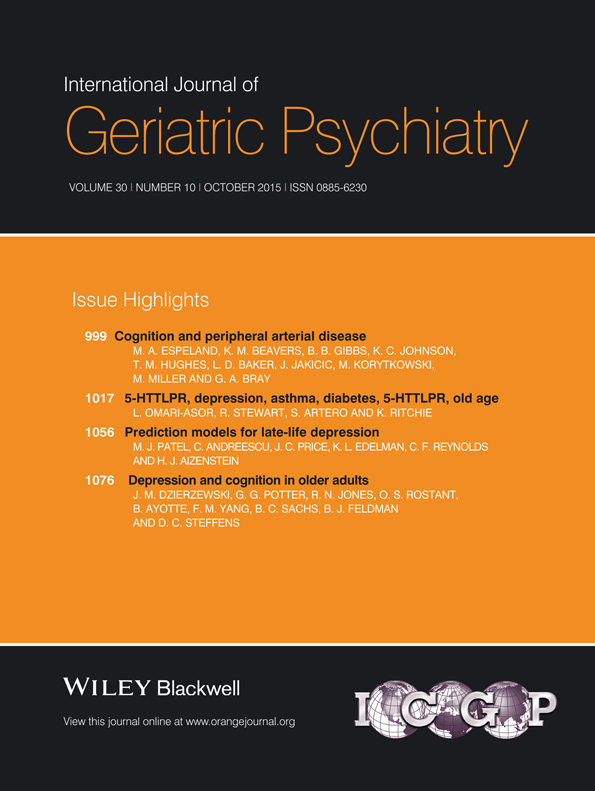Mild cognitive impairment in Parkinson's disease and its progression onto dementia: a 16-year outcome evaluation of the Denbighshire cohort
Abstract
Objective
Mild cognitive impairment in Parkinson's disease (PD-MCI) has been suggested to be a predictor for the development of PD dementia (PDD). This study explored the incidence and possible neuropsychological domain differences between PD patients with PD-MCI and without cognitive impairment (normal cognitive function with PD), on the basis of the Movement Disorders Task Force Guidelines for PD-MCI.
Methods
At baseline (T1), 4 years (T2) and 6 years (T3), 166 patients with PD were administered global neuropsychological assessments. At 16 years, case note and neuropsychological assessment review was employed to calculate the number of patients who had progressed to PDD.
Results
At baseline, 68 patients were classified as normal cognitive function with PD, 18 with PD-MCI and 80 with PDD. At T2, 12 of the PD-MCI cohort at T1 had progressed to PDD, and there were 15 incident cases of PD-MCI. At T3, nine PD-MCI cases at T2 had progressed to PDD. There were 10 incident cases of PD-MCI at T3. The incidence of progression from PD-MCI to PDD was 98.0 per 1000 person-years, with an annual conversion rate to PDD of 11%. Neuropsychological predictors for conversion from PD-MCI to PDD were semantic language, praxis (figure drawing/copying) and visuospatial deficits. At 16 years, 91% of the PD-MCI cohort had progressed to PDD.
Conclusions
Mild cognitive impairment in Parkinson's disease is an important predictor for the progression to PDD. This investigation also confirmed that if PD patients live long enough, they will develop cognitive impairment or dementia. Early detection of cognitive impairment in these individuals is possible with existing standardised global cognitive assessments, which include semantic language assessment. Copyright © 2015 John Wiley & Sons, Ltd.




